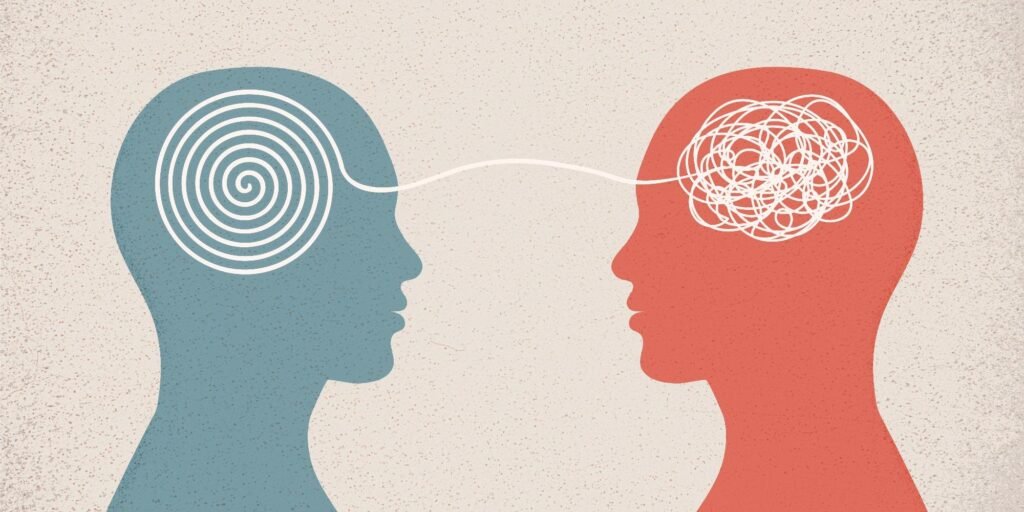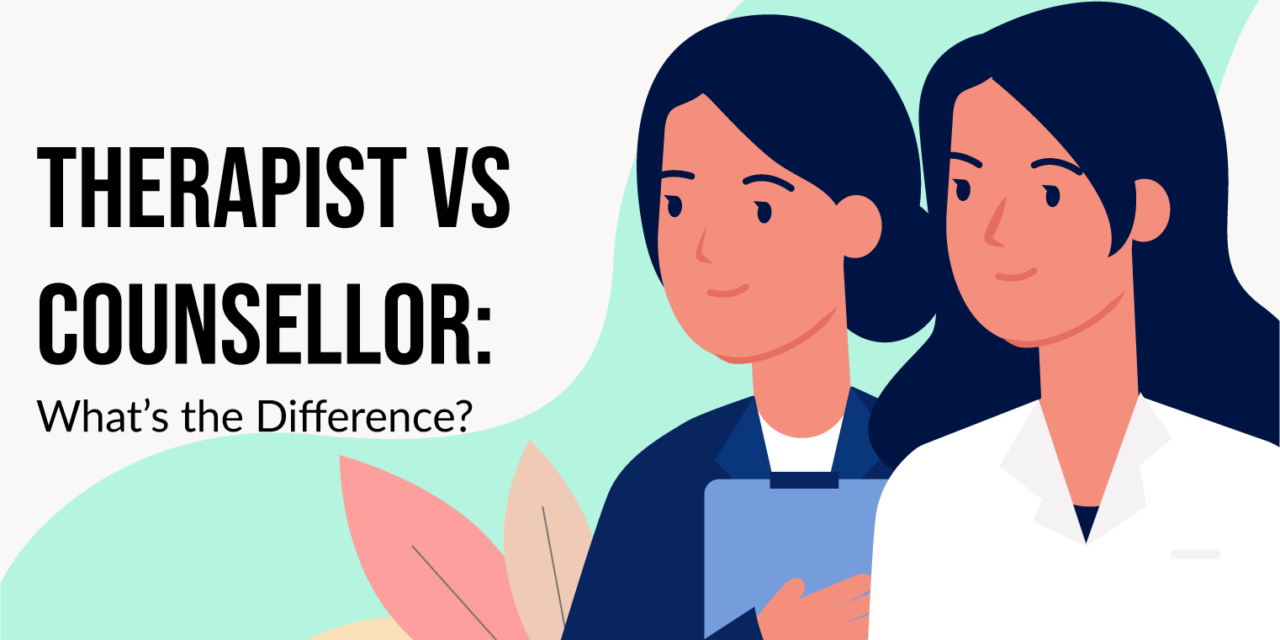Introduction of Psychotherapy Vs counseling
Psychotherapy vs Counseling: When it comes to mental health treatment, knowing the difference between these two approaches is crucial. While both aim to improve mental well-being, they have distinct methods and purposes.
What’s the Difference Between Psychotherapy and Counseling?
Psychotherapy and counseling are both forms of mental health therapy but have some differences.
If you’re feeling down or struggling with life’s challenges, you might consider getting help from a professional. But should you seek psychotherapy or counseling? Both can be helpful, but they have some differences. Let’s explore what these differences are in simple terms.
Psychotherapy:
- Focuses on long-term issues.
- Helps with deep-seated problems.
- Aims for personal growth and change.
Counseling:
- Addresses current issues.
- Provides practical advice.
- Aims to solve specific problems quickly.
If you’re feeling down or struggling with life’s challenges, you might consider getting help from a professional. But should you seek psychotherapy or counseling? Both can be helpful, but they have some differences. Let’s explore what these differences are in simple terms.
What is Psychotherapy?

Psychotherapy, often just called “therapy,” involves working with a therapist to understand and resolve deeper issues affecting your mental health. This process may last for several months or even years.. It’s often used for serious mental health conditions like depression, anxiety, bipolar disorder, and more.
Therapists use various techniques, such as:
Cognitive Behavioral Therapy (CBT):
- Helps change negative thought patterns.
Psychodynamic Therapy:
- Looks into past experiences to understand current behavior.
Humanistic Therapy:
- Focuses on personal growth and self acceptance.
Psychotherapy sessions are usually one-on-one, but they can also be in groups or with family members.
What is Counseling?

Counseling is usually shorter-term and focuses on specific issues or challenges you’re facing right now. It’s more about finding solutions to immediate problems rather than digging deep into your past.
Counselors can help with:
Grief or Loss:
- Coping with the death of a loved one.
Relationship Issues:
- Improving communication with your partner.
Stress Management:
Finding ways to handle stress better.
Counseling sessions are also typically one-on-one but can be done in group settings, like marriage counseling.
Key Differences:
1. Duration:
Psychotherapy tends to be longer-term, while counseling is usually short-term.
2.focus:
Psychotherapy looks at deeper issues and patterns, whereas counseling addresses specific problems.
3.Techniques:
Therapists might use specialized techniques like CBT or psychodynamic therapy. Counselors often focus on practical solutions and coping strategies.
Complete Treatment:
Psychotherapy involves talking with a trained therapist to explore and resolve deeper issues.
A complete psychotherapy treatment plan may include:
Regular Sessions:
Consistent, scheduled meetings with a therapist, usually once a week.
Specific Techniques:
Depending on your needs, therapists might use methods like Cognitive Behavioral Therapy (CBT), Dialectical Behavior Therapy (DBT), or Psychodynamic Therapy.
Goals and Progress:
Setting clear goals and tracking progress over time to ensure the therapy is effective.
Counseling is often more focused on current issues and finding solutions.
A complete counseling treatment plan may involve:
Short-Term Sessions:
Typically lasting for a few weeks to a few months.
Problem-Solving Focus:
- Addressing specific problems like stress, relationship issues, or grief.
Practical Advice:
- Offering strategies and coping mechanisms to handle immediate challenges.
Medications:

Medications can be an essential part of treatment, especially for more severe mental health conditions.
Here are some commonly prescribed medications:-
Antidepressants:
- Such as SSRIs (Selective Serotonin Reuptake Inhibitors) like fluoxetine (Prozac) and sertraline (Zoloft). These are used to treat depression and anxiety.
Anxiolytics:
- Like benzodiazepines (e.g., diazepam/Valium, lorazepam/Ativan) are used for anxiety, but they are typically prescribed for short-term use due to the risk of dependence.
Mood Stabilizers:
- Such as lithium and valproate, used for conditions like bipolar disorder.
Antipsychotics:
- Like risperidone (Risperdal) and aripiprazole (Abilify), used for conditions like schizophrenia and severe bipolar disorder.
Combining Treatments:

A complete treatment plan often involves a combination of psychotherapy, counseling, and medication. This integrated approach can provide comprehensive care and better outcomes.
For example:
Psychotherapy:
- To address underlying issues and develop coping skills.
Counseling:
- To manage immediate problems and stressors.
Medication:
- To stabilize mood and manage symptoms.
Choosing the Right Treatment:
The best treatment plan varies depending on individual needs and conditions. Consulting with a mental health professional is crucial. They can assess your situation, recommend the most appropriate therapies, and prescribe medications if necessary.
What is the Complete Treatment for Psychotherapy and Counseling, and Which Medicines are Best?
The best and most comprehensive mental health treatment can be found in several countries known for their advanced healthcare systems.
Here are a few:
United States:
Comprehensive Care:
- The U.S. offers extensive mental health services, including advanced psychotherapy and a wide range of medications.
Specialized Clinics:
- There are many specialized clinics and hospitals dedicated to mental health.
Insurance Coverage:
- Many health insurance plans cover mental health treatments.
United Kingdom
NHS Services:
- The National Health Service (NHS) provides free mental health care to residents.
Specialized Therapists:
- The UK has a strong network of trained therapists and counselors.
Access to Medications:
- Patients have access to a wide range of effective medications.
Canada
Universal Healthcare:
- Canada’s universal healthcare system includes mental health services.
Integrated Care:
- Mental health care is often integrated with other health services, providing holistic treatment.
Support Programs:
- Various programs and services support mental health, including counseling and therapy.
Conclusion:
Complete treatment for mental health involves a combination of psychotherapy, counseling, and possibly medication. The best medicines are those prescribed by a healthcare professional tailored to your specific needs.
Remember, seeking help and following through with your treatment plan can lead to significant improvements in mental health and overall well-being.Both psychotherapy and counseling can provide the support and guidance you need. The choice depends on your personal needs and goals.
If you’re unsure which is right for you, a good first step is to talk to your doctor or a mental health professional. They can help you decide the best path forward.
Remember, seeking help is a sign of strength, and taking that step can lead to a healthier and happier life. Several countries, including the United States, United Kingdom, Canada, Germany, and Australia, are known for offering excellent and comprehensive mental health treatment. They provide a combination of psychotherapy, counseling, and medications, supported by advanced healthcare systems and well-trained professionals.
must watch 👀 and don’t miss click here 👇👇😅
What Are the Leg Pain Causes and Their Concerns?






Your work has captivated me just as much as it has you. The sketch you’ve created is tasteful, and the material you’ve written is impressive. However, you seem anxious about the prospect of presenting something that could be considered questionable. I believe you’ll be able to rectify this situation in a timely manner.